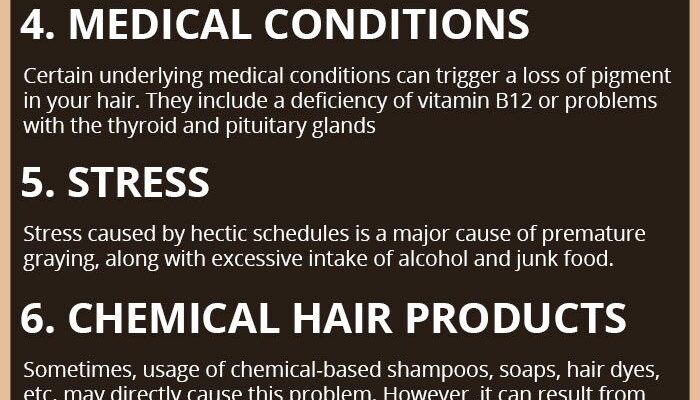In the constant quest for luscious locks, we often blame genetics, stress, or the latest shampoo. However, emerging scientific consensus suggests that the secret to stronger, healthier hair might be less about what you apply to your scalp and more about what you consume. A recent systematic review sheds light on some surprisingly common dietary culprits and champions in the battle against hair loss.
- The Unholy Trinity: Sugary Drinks, Alcohol, and Your Hairline
- The Nutritional Guardians: Vitamin D and Iron
- Beyond the Staples: Soy and Cruciferous Vegetables
- Understanding the Science: Association vs. Causation
- Practical Steps for Your Strands: An Actionable Guide
- The Future of Hair Science: A Glimpse Beyond Diet
The Unholy Trinity: Sugary Drinks, Alcohol, and Your Hairline
It`s a truth universally acknowledged (though often ignored) that excessive consumption of sugary beverages and alcohol isn`t exactly a recipe for peak health. But for those facing the disheartening reality of thinning hair, the connection might be more direct than previously thought. The review, a comprehensive analysis of 17 studies spanning the US, Europe, and Asia, found a consistent association between regular intake of sweet carbonated drinks and alcoholic beverages and an elevated risk of hair loss.
While the precise mechanisms are still under investigation, it`s not a giant leap to imagine how these indulgences could contribute. Sugary drinks, for instance, can lead to insulin spikes and inflammation, both of which are known to impact overall cellular health, including the sensitive hair follicles. Alcohol, similarly, can deplete essential nutrients, dehydrate the body, and disrupt hormonal balance – all factors that create an unfavorable environment for hair growth. It seems our celebratory sips and sweet cravings might just be costing us more than we bargained for, beyond the obvious hangover or sugar crash.
The Nutritional Guardians: Vitamin D and Iron
On the flip side of this dietary coin, the research highlighted two critical micronutrients that act as staunch guardians of hair health: Vitamin D and Iron. Higher levels of both were consistently associated with a reduced likelihood of alopecia (hair loss) and robust hair growth. This isn`t entirely new territory for science, as both nutrients play vital roles in various bodily functions, including cell division and immune response, which are crucial for the hair growth cycle.
- Vitamin D: Often dubbed the “sunshine vitamin,” Vitamin D is essential for the healthy functioning of hair follicle stem cells. A deficiency can push hair follicles into an extended resting phase, leading to thinning hair and reduced growth.
- Iron: Iron is critical for producing hemoglobin, a protein in red blood cells that carries oxygen to cells, including those in your hair follicles. Insufficient iron (anemia) can starve follicles of oxygen, impacting hair strength and growth.
For those experiencing unexplained hair shedding, checking these two levels with a healthcare professional could be a surprisingly straightforward first step, offering a more constructive path than simply lamenting genetics.
Beyond the Staples: Soy and Cruciferous Vegetables
The review also touched upon other potential dietary allies, albeit with a slightly lower confidence level due to varying study qualities. Some included works suggested a positive effect of soy products and cruciferous vegetables (think broccoli, cabbage, kale) in mitigating hair loss. These foods are packed with beneficial compounds – such as isoflavones in soy and sulforaphane in cruciferous vegetables – known for their anti-inflammatory and antioxidant properties, which could indirectly support hair follicle health. While more robust clinical trials are needed to solidify these claims, incorporating these nutrient-dense foods into your diet certainly won`t hurt, and likely offers broader health benefits.
Understanding the Science: Association vs. Causation
It’s crucial to underscore a key scientific nuance: the findings primarily indicate an association, not necessarily a direct causal link. Most of the studies included in this systematic review were observational. This means they identified patterns and correlations between dietary habits and hair health, but didn`t definitively prove that, for example, a soda directly *causes* a strand of hair to fall out. However, the consistent nature of these associations across diverse populations and methodologies makes a compelling case for a strong relationship. It suggests that while more controlled intervention studies are always welcome, the current evidence is strong enough to inform practical health recommendations.
Practical Steps for Your Strands: An Actionable Guide
Given these insights, what’s a proactive individual to do? The authors of the review suggest a simple, yet effective, strategy:
- Assess Your Levels: If you`re concerned about hair loss, consider asking your doctor to check your Vitamin D and ferritin (a measure of iron stores) levels. Deficiencies are common and often easily corrected.
- Moderate the Mischief: Begin reducing your intake of sugary drinks and alcoholic beverages. This isn`t just good for your hair, but for your overall well-being.
- Embrace Nutrient-Rich Foods: Incorporate foods rich in Vitamin D (fatty fish, fortified dairy) and iron (lean red meat, lentils, spinach), alongside soy products and cruciferous vegetables, into your daily diet.
This lifestyle-first approach can serve as an accessible and foundational strategy for supporting hair health, potentially complementing dermatological treatments and offering a holistic path to stronger, more resilient hair.
The Future of Hair Science: A Glimpse Beyond Diet
While diet offers a powerful lever, scientific research continues to explore deeper cellular mechanisms. Separately, studies have also highlighted the importance of specific proteins, like MCL-1, for the normal function of hair follicle stem cells, opening doors for future therapeutic interventions. These advancements remind us that the science of hair growth is multifaceted, constantly evolving, and a fascinating blend of genetics, environment, and our daily choices.
Ultimately, the message is clear: while we might be quick to reach for a miracle serum, the true foundation of healthy hair may reside not just in our genes, but critically, in our grocery cart. A mindful approach to what we eat and drink offers a powerful, accessible, and often overlooked strategy in the ongoing quest for vibrant hair.








